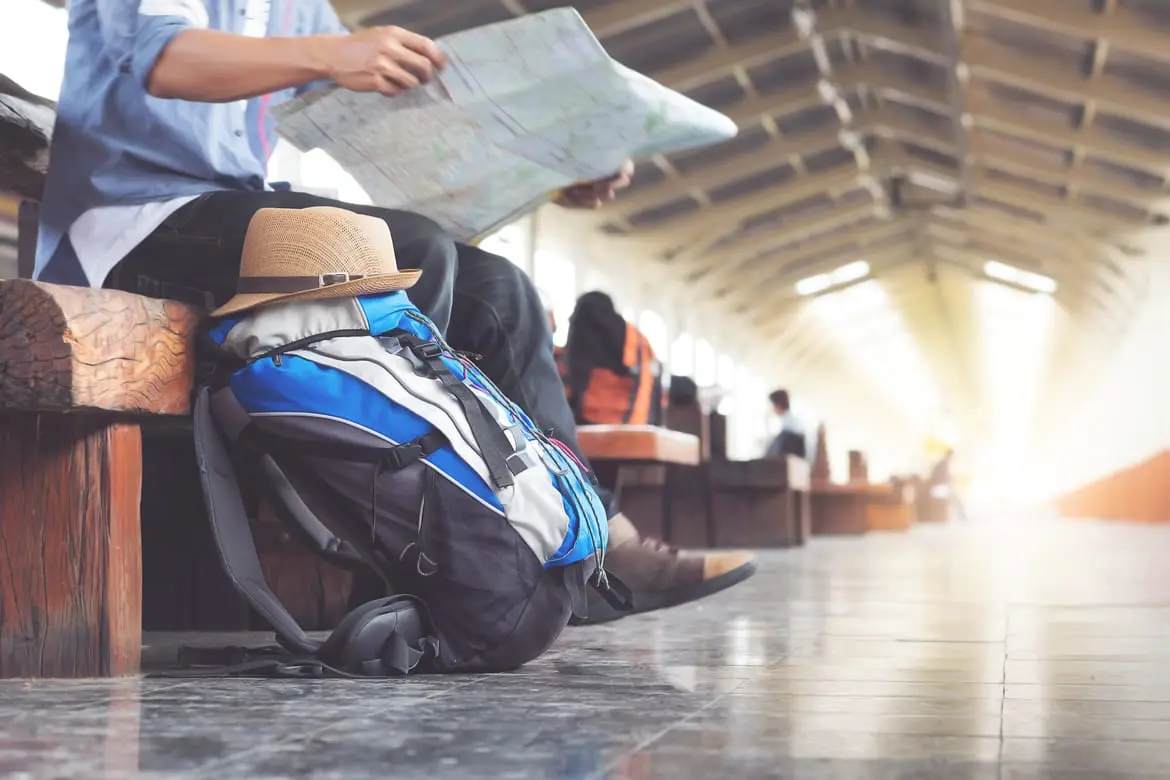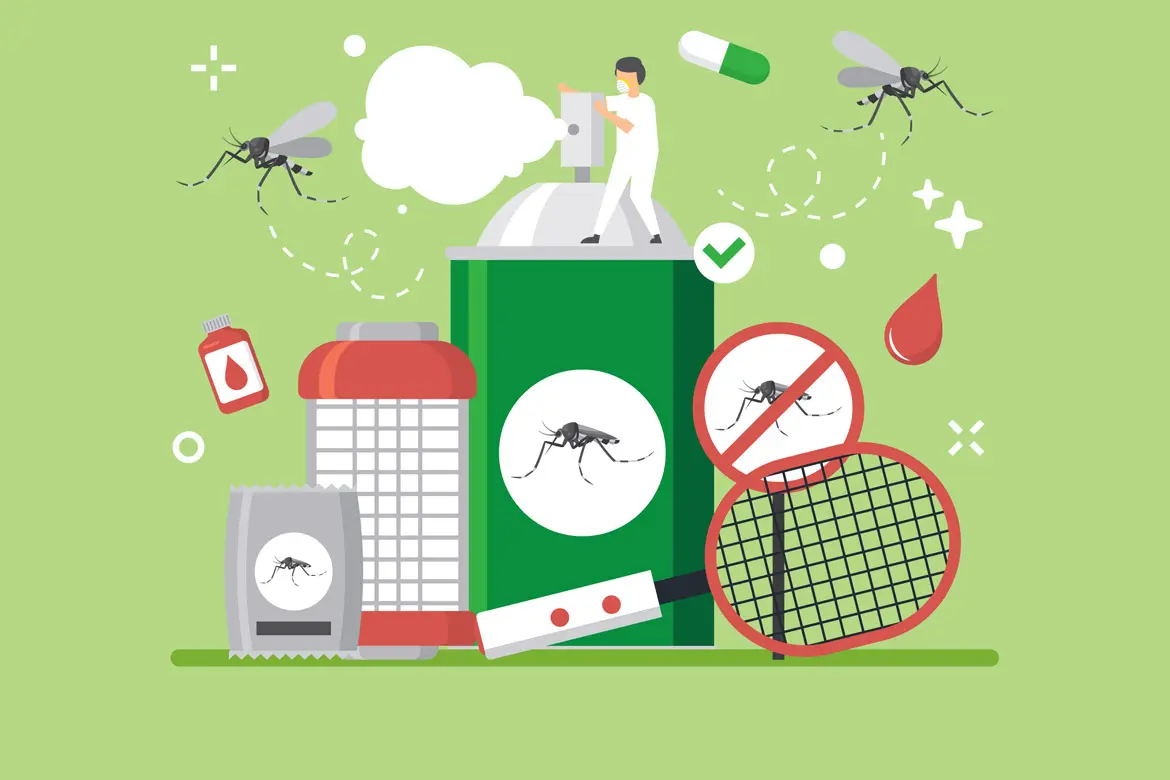The rising number of global travels increase our exposure to severe and life-threatening diseases. The one thing you must do before traveling is get vaccinated at least 4 – 6 weeks before traveling. This gives the vaccination enough time to kick into effect once you arrive at your destination.
Different countries require different vaccinations, and you'd want to check with your doctor what vaccines and medicines you need based on where you are going, how long you are staying, and what you will be doing.
Whether you're heading for a summer vacation or going to see the northern lights in Iceland, here are 13 of the nastiest travel diseases and what you should know about them.
Chikungunya virus (CHIKV)
Like Zika and dengue, the chikungunya virus spreads in humans via the bite of an infected female Aedes species mosquito. Fever and joint pain are the main symptoms but some people experience headaches, muscle aches and rashes.
Chikungunya is rarely fatal and most people recover fully in a few days. Only some develop persistent chronic painful joints, and these are usually older adults.
Areas with CHIKV: Democratic Republic of Congo, Gabon, India, Indonesia, Maldives, Myanmar, Thailand, France
Precautions: There is no vaccine available, so the best countermeasure is to prevent mosquito bites with the following steps
- Eliminate or reduce the number of artificial water-filled containers and natural habitats that act as a breeding ground for the Aedes mosquitoes
- Use clothing and gear treated with permethrin (insect repellent)
- Use insect repellent that contain DEET or picaridin
Cholera
Cholera is an intestinal illness that results in severe diarrhoea. The disease is caused by bacteria, and can spread rapidly in areas with inadequate treatment of sewage and drinking water, as well as in regions of war, famine and overcrowding.
Cholera infection often comes with mild or no symptoms, but 5 – 10% of infected people will have severe disease characterised by sudden, profuse watery diarrhoea and vomiting that can lead to low blood pressure, dehydration, shock, muscle cramps, and a quickened heart rate. Without treatment, death can occur within hours.
Areas with cholera: Kenya, Malawi, Nigeria, Tanzania, Dominican Republic, Haiti, Afghanistan, Iraq, Yemen
Precautions:
- Get vaccinated before travelling
- While you are there, observe the use of good hygiene and sanitation, and avoid unsafe food and water
Ebola
Ebola is an extremely severe and often fatal viral disease known to be transmitted to humans from wild animals. It spreads through direct contact with bodily secretions of an infected person.
The illness usually comes on abruptly and is characterised by fever, headache, joint and muscle aches, sore throat, and weakness, followed by diarrhoea, vomiting and stomach pain. It remains unclear why some patients are able to recover from the virus, but it is known that patients who do not recover usually have not developed a significant immune response to the virus at the time of death.
If symptoms consistent with Ebola develop, be sure to talk to a doctor immediately. Focus on recuperation and stay away from others to prevent the possible spread of the disease.
Unless you are travelling to an area where an Ebola outbreak is occurring, or you have direct contact with an infected individual, the risk of contracting the illness is extremely low.
Areas with Ebola: Liberia, Guinea, Sierra Leone, Nigeria, United States of America, Mali
Precautions: Although there is no vaccine for Ebola yet, travellers can still take the following steps to protect themselves against the virus
- Avoid contact with sick individuals, dead bodies, blood or bodily fluids
- Avoid contact with animals, especially monkeys, chimpanzees, gorillas and bats
- Do not eat or handle raw or undercooked meat
- Practise good personal hygiene including cleaning your hands often with soap or sanitiser
Hepatitis A
Hepatitis A is a viral liver disease that is primarily spread when a person ingests food or water that is contaminated with the faeces of an infected person.
You're more likely to be exposed to the hepatitis A when travelling to areas where there is inadequate sanitation, unsafe water or food, or poor personal hygiene.
Although a hepatitis A infection makes people sick for months, most people who get hepatitis A recover completely and do not have any lasting liver damage. On rare occasions, the disease can cause debilitating symptoms and acute liver failure which is often fatal.
Symptoms can range from mild to severe, and can include fever, loss of appetite, nausea, stomach discomfort and jaundice. Not everyone who is infected will experience all the symptoms.
Areas with hepatitis A: Austria, Netherlands, Norway, Portugal, Spain, United Kingdom
Precautions:
- Get vaccinated. Even if you are not travelling to a place where hepatitis A is prevalent, the vaccination can be taken as part of regular childhood immunisation programmes and with other vaccinations for travellers
- Observe personal hygiene practices such as regular hand-washing with clean water
- Adequate supplies of clean and safe drinking water
- Proper disposal of waste and sewage within communities
Influenza
Influenza is a viral infection that attacks your respiratory system. People often used the term 'flu' to describe any kind of mild illness, such as a cold or a stomach virus, but the flu really refers to an infection caused by influenza viruses A and B.
The flu causes a fever, body aches, a headache, a dry cough, and a sore or dry throat. You will probably feel tired and less hungry than usual. The symptoms usually are the worst for the first 3 or 4 days but it can take 1 – 2 weeks to completely recover. For most people, influenza resolves on its own. But sometimes, its complications can be deadly.
Areas with Influenza: Sri Lanka, Japan, Israel, Italy, South Korea, Canada
Precautions: Get the seasonal flu vaccine every year. Yearly immunisation with the inactivated influenza vaccine or the nasal spray flu vaccine prevents flu infection and its complications in most people.
Malaria
Malaria is a disease caused by parasites transmitted to humans through the bite of the Anopheles mosquito. This is the only mosquito that can cause malaria. These mosquitoes are active between dusk and dawn. Once an infected mosquito bites a human and transmit the parasites, those parasites multiply in the host's liver before infecting and destroying red blood cells that are in charge of transporting oxygen from the lungs to the rest of the body.
Symptoms of uncomplicated malaria include high fever, shaking chills, and flu-like illness, and typically appears within 7 – 30 days. These symptoms are often undiagnosed or misdiagnosed in areas where malaria is less common.
When there is clinical evidence of vital organ dysfunction, the condition is defined as severe malaria. Severe malaria may potentially be fatal if left untreated.
Areas with malaria: Democratic Republic of Congo, Kenya, Angola, Ethiopia, Ghana, Liberia, Brazil, Haiti, Peru
Precautions: Unfortunately, the development of an effective vaccine is still in the process. Travellers can prevent mosquito bites and malaria by taking the following steps
- Check with your doctor on suitable malaria treatment medication such as Malarone (which contains atovaquone and proquanil), mefloquine or doxycline
- Use insect repellents containing DEET or picaridin as directed
- Use clothing and gear treated with permethrin (insect repellent) to cover exposed skin
- Stay and sleep in screened or air-conditioned rooms. Use a bed net if your sleeping area is exposed outdoors
- If you do get bitten by mosquitoes, avoid scratching and immediately apply hydrocortisone cream or calamine lotion to reduce itching
After travel: Talk to your doctor if you feel seriously ill, especially if you have fever within 1 year of travelling.
Middle East respiratory syndrome (MERS)
MERS is a viral respiratory disease that was first identified in Saudi Arabia in 2012. Typical symptoms include fever, cough and shortness of breath. Pneumonia is common but not always present. Some confirmed cases of MERS infection are reported as asymptomatic, meaning patients did not show any clinical symptoms yet tested positive for the infection.
The virus does not seem to pass easily from person to person unless through airborne transmission. Although the majority of human cases have been attributed to human-to-human infections, current evidence suggests that camels are a major reservoir host for the virus and a source of infection in humans.
Areas with MERS: China, France, Italy, Malaysia, Republic of Korea, Jordan, Austria, Kuwait
Precautions: At present, there is no vaccine or specific treatment available. Take the following steps to protect yourself against the virus
- If you are visiting farms or barns, make sure to practise general hygiene measures such as washing your hands before and after touching animals, and avoiding contact with sick animals
- Avoid consumption of raw or undercooked animal products
- Handle animal products with care to avoid cross-contamination
Polio
Otherwise known as poliomyelitis, the virus is spread primarily from person to person via contaminated food and water. Initially, infection of the gut can spread to the spinal cord or brain resulting in paralysis.
Many cases of polio do not come with obvious symptoms. In cases that do, the symptoms are sudden and they include fever, headache, nausea and vomiting.
The virus subsequently invades the bloodstream and nervous system. Paralysis occurs in less than 1 in 100 cases of infection but the risk increases with age, and the patient may die if the respiratory and swallowing muscles are affected. Those who survive may develop residual paralysis. A full recovery can take up to a year.
Areas with polio: Afghanistan, Nigeria, Pakistan
Precautions:
- Get the polio vaccine. Even if you were vaccinated as a child or have been sick with polio before, you are recommended to get a vaccination booster dose before travelling to areas with polio
- Eat safe foods and drink safe beverages ie. avoid exposure to any food and drinks that could be contaminated with the faeces of an infected person
- Observe good personal hygiene and cleanliness
After travel: If you feel seriously ill, especially if you have a fever, talk to your doctor or nurse. Remember to tell them where and when you travelled.
Schistosomiasis
Sometimes referred to as bilharzias or snail fever, schistosomiasis is an acute and chronic disease caused when people come into contact with the larval forms of the parasite – released by freshwater snails – in infected water.
Sometimes, people with schistosomiasis do not feel sick. Early symptoms can include rash and itchy skin, fever, chills, cough or muscle aches. If left untreated, schistosomiasis can lead to further complications.
Areas with schistosomiasis: Southern China, Philippines, Laos, Brazil, Venezuela, Dominic Republic, Iran, Iraq, Yemen, Saudia Arabia
Precautions:
- Avoid wading, swimming or bathing in freshwater in countries where schistosomiasis occurs
- If you have to use freshwater for bathing or other reasons, treat the water in one of the 3 ways to avoid infection:
- Filter water with fine mesh filters (pore size of 30 μm or smaller)
- Heat water to 50˚C for 5 minutes
- Keep water in a storage tank for at least 24 hours before use
After travel: If you feel seriously ill, especially if you have a fever, talk to your doctor. Describe to them in detail where and how long you travelled, and explain that you might have been exposed to contaminated water. Remember to ask if you need to be tested for the disease.
Tetanus
Tetanus is often called 'lockjaw' because the jaw muscles tighten and the person cannot open his mouth. It is an illness that can occur after an injury with a contaminated object - the bacteria is commonly found in soil and can get into the body through any type of break in the skin, such as wounds, burns or animal bites.
Tetanus is potentially fatal. The bacteria enters the body through a wound where they grow and produce a powerful toxin which circulates in the blood and causes muscular rigidity and painful muscle contractions. Death is usually caused by respiratory problems and exhaustion.
Areas with tetanus: France, Cambodia, China, Egypt, Morocco, Niger, Sierra Leone, Yemen
Precautions:
- Get a tetanus vaccine before you travel. For convenience, take the Tdap vaccine, a combination booster shot that protects you against tetanus, diphtheria and pertussis (whooping cough)
- All wounds, even minor ones, should be thoroughly washed with clean water and soap to remove all dirt and loose tissue
- Immunisation against tetanus is highly protective. Booster doses should be given at 10-year intervals
Typhoid fever
Typhoid fever is a life-threatening illness caused by the bacterium Salmonella typhi, and is carried in the bloodstream and intestinal tract of an infected person. A small number of patients recover from the fever but continue to carry the bacteria. These are called carriers. You can get typhoid fever if you eat food or drink beverages that have been contaminated, or if contaminated sewage gets into the water you use for drinking and washing food.
Areas with typhoid fever: Afghanistan, Bangladesh, Bhutan, Brazil, Chile, Cuba, Costa Rica, Fiji, Laos, Nepal, Paraguay, Russia, Southeast Asia (excluding Singapore)
Precautions:
- Get vaccinated against typhoid fever. The vaccine is 60 – 80% effective for 2 – 5 years
- Avoid risky foods and drinks will help protect you from other diseases including diarrhoea, cholera and hepatitis A
- Practice good personal hygiene and cleanliness
Yellow fever
Named for the jaundice that affects some patients with this disease, yellow fever is transmitted to humans via the bite of infected Aedes or Haemagogus mosquitoes.
Most infected people show no obvious symptoms and even when they do, they have only a mild illness including sudden fever, chills, severe headache, back pain, muscle aches, nausea, vomiting and fatigue. After a temporary recovery of about a day, about 15% of patients develop a more severe form of the disease characterised by high fever, jaundice, bleeding and eventually, shock and multisystem organ failure. Up to 50% of these patients die within 10 – 14 days.
There is no drug available to cure yellow fever. Treatment is aimed at relieving symptoms.
Areas with yellow fever: Africa, Brazil, Peru, Paraguay, Panama, Columbia
Precautions:
- Vaccinate at least 14 days before travelling to areas with yellow fever. You will need proof of vaccination before and after entering these countries
- Opt for screen housing
- Use insect repellents containing DEET or picaridin
- Wear clothes that cover exposed skin
Zika
Zika is a virus spread to people primarily through the bite of an infected Aedes mosquito – the same mosquito that transmits dengue and chikungunya. Among those who develop symptoms, sickness is usually mild with symptoms lasting several days to a week.
Current research suggests that Guillain-Barrè syndrome (GBS) – a rare disorder that can cause muscle weakness and paralysis for a few weeks to a few months – is strongly associated with Zika. However, only a small proportion of people (around 1 in 4000) will get GBS. Most who do recover fully but some suffer permanent damage.
Areas with Zika: Mexico, Angola, Maldives, Singapore, Carpe Verde, Ghana, Kenya, Tanzania, Cuba
Precautions: There is no vaccine or medicine for Zika. Protect yourself against mosquitoes and Zika with the following steps
- Wear long-sleeved shirts and long pants to cover exposed skin
- Use insect repellents containing DEET or picaridin. Always use as directed
- As Zika can be sexually transmitted, if you have sex while travelling, you should use condoms or other barriers to prevent infection
After travel: Upon returning home from a Zika-infected country, you should continue to take steps to prevent mosquito bites for 3 weeks, and continue to use condoms to protect your sex partner.
What to do when you return home
If you find you've developed symptoms that could indicate any of these diseases, seek a medical opinion as soon as possible.
Remember to tell your doctor where and when you travelled, and ask if you need to be tested for the disease.
Get plenty of rest and stick to a well-balanced diet so you can regain strength quickly. Remember to drink water in excess, ensuring your pee is clear. While you're recuperating, it is advisable to avoid contact with other persons to prevent potentially spreading the disease.
Maybe you didn't develop signs of illnesses, but suspect you might have contracted one or just want to be on the safe side. There is definitely no harm in taking the precaution and consulting your doctor in exchange for a peace of mind.












